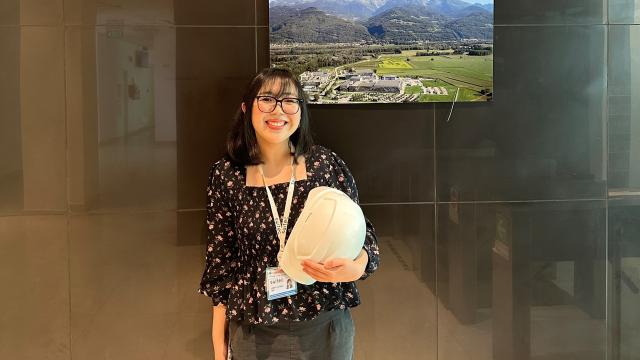3P partnership to bolster service, data, and process transformation to address current and future needs of sector.

From left: Mr Soh Wai Wah, Principal, Chief Executive Officer, Singapore Polytechnic; Prof Chua Kee Chaing, President, Singapore Institute of Technology; Mr Eric Chua, Senior Parliamentary Secretary, Ministry of Culture, Community and Youth & Ministry of Social and Family Development; Ms Jeanne Liew, Principal, Chief Executive Officer, Nanyang Polytechnic; and Ms Tan Li San, Chief Executive Officer, National Council of Social Service. (Photo: National Council of Social Service)
Three Memoranda of Understanding (MOU) to bolster service, data, and process transformation in the non-profit sector were signed between the National Council of Social Service (NCSS) and the Singapore Institute of Technology (SIT), Nanyang Polytechnic (NYP), and Singapore Polytechnic (SP) respectively.
The MOU signing ceremony was witnessed by Mr Eric Chua, Senior Parliamentary Secretary (SPS) in the Ministry of Social and Family Development, and Ministry of Culture, Community and Youth, at the inaugural Transformation Showcase for Non-Profits (TSNP) organised by NCSS.
“The TSNP highlighted many social service agencies (SSAs) and our partners’ efforts in innovation and collaboration. To ensure that these efforts bring about sustained support for individuals and families, we need to harness the strengths of partners in the public, private and people (3P) sectors. The MOUs exemplify ways we can leverage the expertise of our 3P partners and signify NCSS’ commitment in forging cross-sector collaborations to ensure that the social service sector is equipped to handle current and future needs,” said SPS Eric Chua.
The COVID-19 pandemic accelerated the need for the social service sector to embrace innovation to augment service delivery, particularly in areas such as digitalisation and organisation development. 3P partnerships form the anchor to sustainably improve productivity and optimise resources and processes. The new MOUs form an umbrella of service-process-data transformation support for the sector.
For service transformation, NCSS will work with SIT’s Community Leadership and Social Innovation Centre (CLASIC) to augment the IT capabilities of Social Service Agencies (SSAs) through end-to-end problem identification and solutioning. The Singapore Muslim Women’s Association (PPIS) approached CLASIC for assistance when they encountered challenges in pivoting to online-based social service programmes during the pandemic. Students from SIT’s ICT Software Engineering programme delivered a proof of concept that could resolve pain points and enhance the process flow in PPIS’s online service delivery. Together with the National Centre of Excellence for Workplace Learning led by NYP and NACE@SIT, NCSS’s Social Service Institute (SSI) will also empower SSAs in developing lifelong workplace learning capabilities to bolster effective long-term transformation.
Through NACE@SIT, six SSAs have benefited from the pilot scheme – PERTAPIS Education & Welfare Centre, CampusImpact, Apex Harmony Lodge, Silver Ribbon Singapore, Lions Befrienders, and RSVP. For example, CampusImpact looked to improve customer satisfaction of its LearningCurve programme where they engage volunteers to tutor youths, and also to streamline the LearningCurve class scheduling processes. By improving the workflow of class scheduling, from using 4 different platforms to a single platform, they reduced the frequency of human errors during information transfer and update.
In addition, the implementation of visual management of the work processes translated to a seamless handover between their staff, and an improvement in clarity of the class schedules for parents. The team went through a process mapping and refinement regimen, and achieved a reduction of customer enquiries and complaints by 70%. In a bid to enhance staff retention and competencies, PERTAPIS Education & Welfare Centre examined their orientation training method for new officers and redesigned it to improve its effectiveness. By introducing a competency assessment, mentoring staff were able to provide the new hires with the specific support that they require. With the new training method, staff competencies were boosted by 35%.
'NCSS’ Social Service Sector Survey 2021 showed us that collaboration is among top opportunities our SSAs feel they can seize in the next three to five years, but they also cited it as one of the key challenges. Through our partnerships with Institutes of Higher Learning, NCSS hopes to help SSAs foster collaboration, accelerate the adoption of innovative practices and build stronger organisational capability, in order to better serve their users. SSAs can also tap on existing resources and funding like the Community Capability Trust to enhance organisational capability and capacity,” said Ms Tan Li San, Chief Executive Officer, NCSS.
SIT President Professor Chua Kee Chaing said, “We are pleased to partner with NCSS in co-creating solutions and facilitating transformational change in the not-for-profit sector. With our strong fundamentals in Applied Learning and Applied Research, we are committed to supporting the Social Service Agencies on their upgrading journey, and developing workplace learning capabilities to prepare their employees for the robust digital economy. This is also a great opportunity for our students to exhibit the SITizen-DNA trait of staying ‘Grounded in the Community’ by making meaningful contributions for the betterment of society.”
SSAs that have Benefitted from the Pilot Scheme
“The Enterprise Transformation Initiative Through Workplace Learning programme has helped facilitate a mindset shift among my leadership team. I believe this initiative will set a strong foundation for CampusImpact to build a more robust organisation, so that social service professionals can experience efficiency and effectiveness in our processes, and their time can be freed up to do what really matters – helping people.”
– Elysa Chen, Executive Director, CampusImpact
“It is important to recognise the real moment of transformation when we allow co-creation of solutions, allow shared ownership and create a workplace that makes people safe to try new things.”
– Sarah Sulaiman, Deputy Head of Home, PERTAPIS Centre for Women and Girls
![[FA] SIT One SITizen Alumni Initiative_Web banner_1244px x 688px.jpg](/sites/default/files/2024-12/%5BFA%5D%20%20SIT%20One%20SITizen%20Alumni%20Initiative_Web%20banner_1244px%20x%20688px.jpg)


